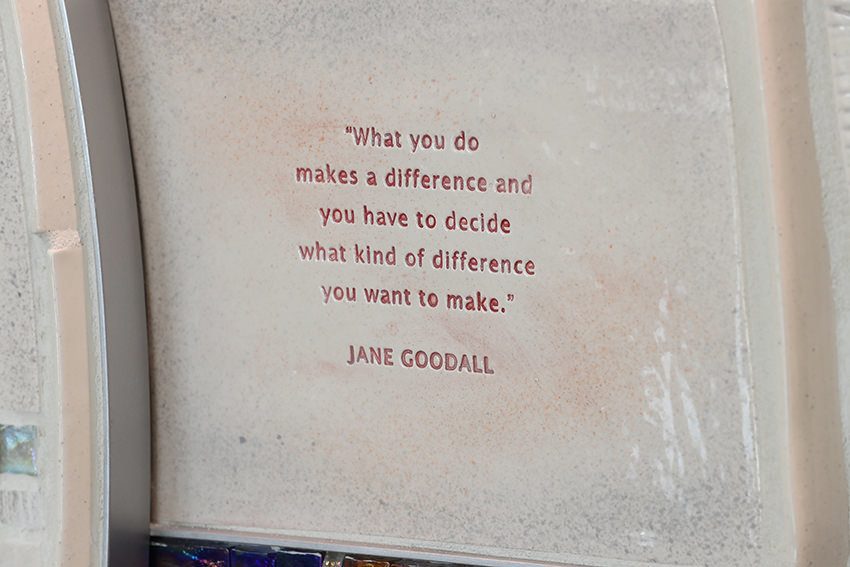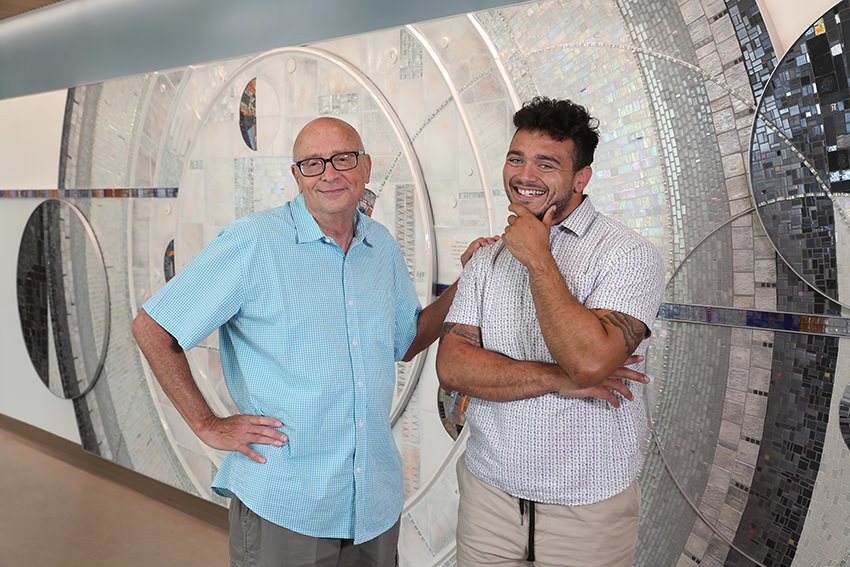Shepherd parlays social work master’s into fellowship
By Bonnie Blankinship
Solomon Shepherd can claim two “firsts” in his academic life: he was in the first graduating class of Bowling Green State University’s new Master of Social Work program and was also accepted into the inaugural class of Fellows of the Institute for Justice Research and Development (IJRD), part of the Florida State University College of Social Work. Shepherd is one of 16 fellows, from 12 universities across the country, selected from a pool of nearly 100 applicants.
The three-year post-master’s fellows program is designed to prepare social work professionals to work and conduct research with formerly incarcerated individuals and their families. Shepherd began his clinical practice June 20, 2019, in Columbus, Ohio. He will be assisting people as they prepare for release from correctional institutions and then as they transition back into life with their families and their communities.
A first of its kind, the post-master’s fellowship is the only fellowship in the nation that provides master’s level social workers in-depth, hands-on training opportunities with people who have been involved with the criminal justice system and their families. Fellows will develop specialized and highly sought-after skills that provide an excellent foundation for the next steps of their career.
The fellowship as well as BGSU’s program were a good fit for Shepherd’s personality and interests, he said. A graduate of Dixie High School in New Lebanon, Ohio, he received a bachelor’s degree in psychology and sociology from Ohio Wesleyan University before coming to BGSU and is interested in creating large-scale policy change to promote public health.
“When I was coming to the end of my undergraduate program I was doing some research into master’s programs and I saw that BGSU had a new one,” he said. “I’m very much one of those people who are drawn to something fresh and I like being a part of a first attempt at something. That’s part of what led me into this fellowship as well. It’s one of a kind and new as far as the crossover between criminal justice and social work.
“My undergraduate majors were psychology and sociology with a focus on criminal justice and looking at the criminal justice system from different perspectives. So the fellowship is a continuation of my education, but being part of something new again piqued my interest.”
His BGSU master’s program was everything he hoped it would be, Shepherd said. There were about 20 other students in his two-year, full-time cohort, intimate enough to allow for close contact with faculty but large enough to provide a diverse set of perspectives and backgrounds among the class. (The program provides other options such as part time and online.) Dr. Peggy Adams, program coordinator, was his contact and adviser. 
“Solomon was a great student,” Adams said, “very insightful, a quick learner, compassionate and empathic — basically a social work educator's dream student.”
“My experience in my master’s program was wonderful,” Shepherd said. “My professional relationship with Dr. Adams was great. She always made herself available to answer questions, and would come into class early to answer questions about the master’s process. I would have to say she went above and beyond in effort to make sure everyone got what they needed to apply for licensure.
“I especially enjoyed working with Dr. Derek Mason. He had high standards and expected great things from us. He really taught us to think critically about issues. When Dr. Adams sent us the posting about the fellowship and I decided to apply for it, it was Dr. Mason who wrote my letter of recommendation.”
“Solomon is a remarkable person who embodies the values, knowledge and professional skills that BGSU and the Social Work Program seeks to instill in its students,” Mason said.
In addition to his good experience with Adams and Mason, Shepherd said, “The other social work faculty also worked so well with us. They prepared us with the pre-comprehensive exam and post-comprehensive exam to make sure we were getting what we needed from our seminar classes and had a strong grasp of everything we needed to know for the exam. That is our capstone at the end of two years. It also prepares us for the board exam for licensure. Now I’m studying for the board and preparing for that.”
Shepherd said he is drawn to the helping professions.
“My personal opinion is everyone needs help in their lives, in different ways. Some have more access to it than others, whether because of their economic status or their racial status or where they come from. I really realized that when I got outside of my neighborhood. For me, a lot of it has to do with my family. My dad was a court administrator for several years when we lived in Montgomery County, and my mom in a doctor. We’ve always had an altruistic view of life.”
He and the other IJRD clinical practice fellows are being trained in the methods of the research study. The institute will continue to provide fellows with intensive training, workshops and resources over the course of the three years to help them develop professionally as both clinicians and researchers.
“We’re tasked with a lot of responsibility and they want to make sure we have all the tools we need,” Shepherd said. He’s enthusiastic about meeting the administrators and staff of the correctional institutions with whom they’ll be working in order to develop a good relationship with them.
Working with people identified and screened by the research fellows of the program, the clinical practice fellows will employ specific interventions to help test an innovative re-entry intervention with incarcerated and formerly incarcerated men and women. They will help their clients develop healthy thinking patterns, meaningful work trajectories, effective coping strategies, positive social engagement and positive interpersonal relationships. They will record detailed information on their assessments, which will be analyzed by the research fellows.
“This is a vulnerable population, and the rules and ethical standards are very strict,” Shepherd said. “We have to have complete transparency. Many may have had unhappy experiences with people in the helping professions in the past, and we are focused on changing their expectations. We’re there to provide support. We want to help them with positive social networking with people in the community and how to do that in a positive and constructive manner. Communication is a major focus.”
Shepherd will work with people being released in Franklin, Muskingum and Fayette counties.
“I have three years to do some good work,” he said. “Then I definitely plan to continue my education, whether it’s going beyond my master’s to a Ph.D. program, or do I want to go to law school? My BGSU program prepared me well. I owe a lot of credit to them; I got a lot of support.”
Updated: 09/04/2019 03:32PM

